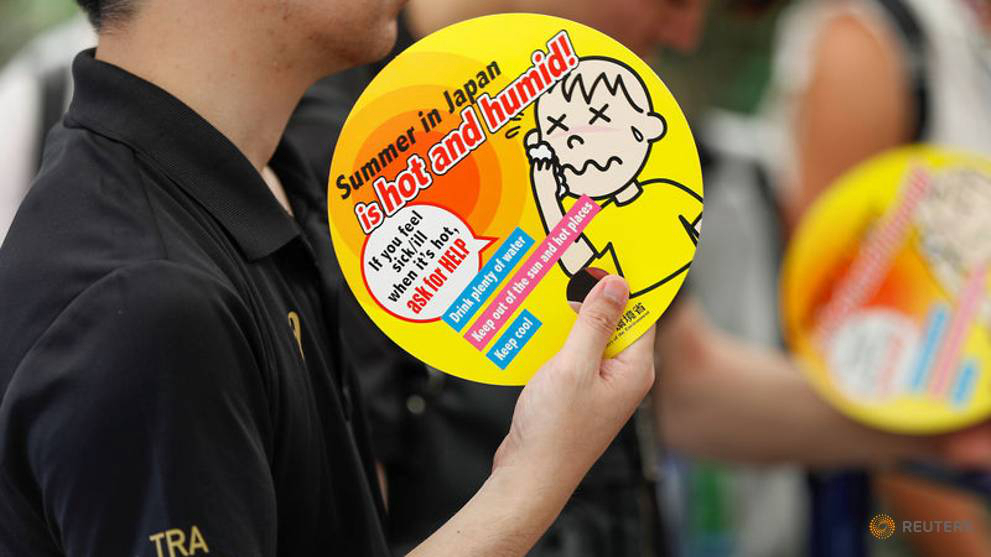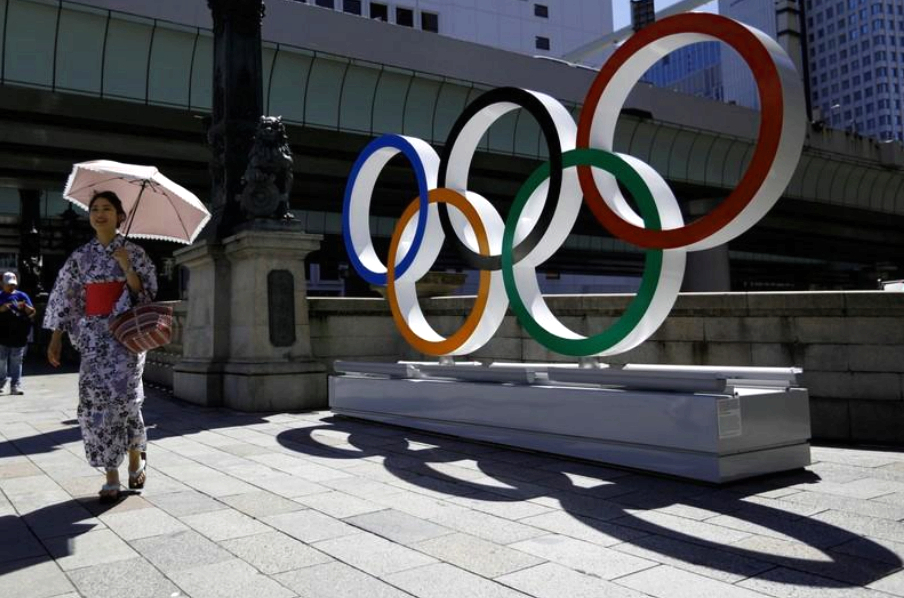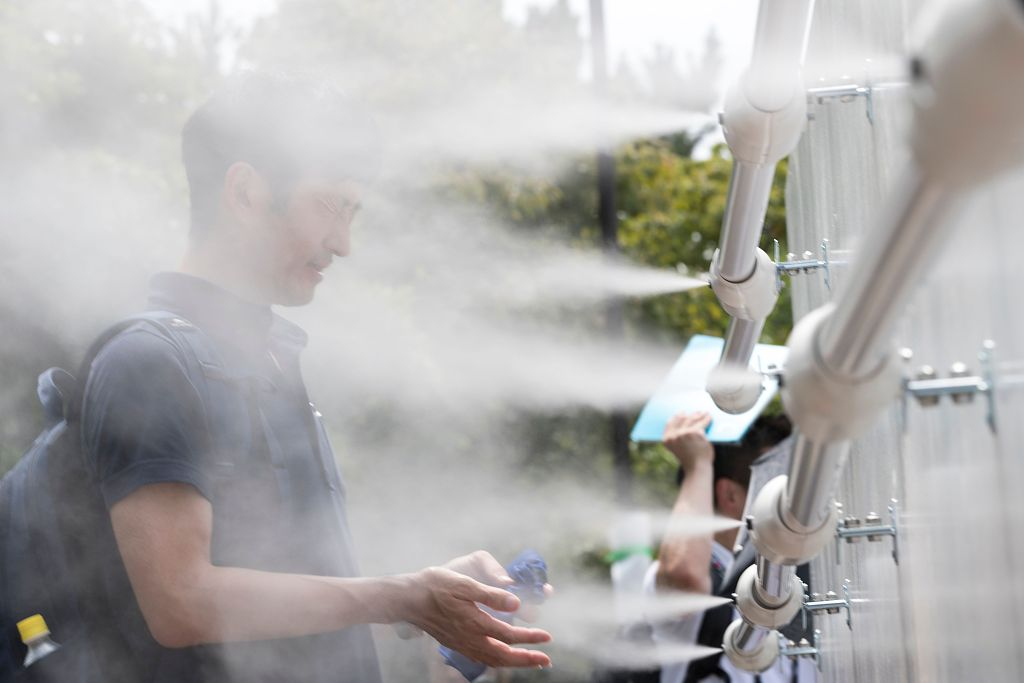

Visitors use paper fans featuring messages about heat during a test of heat countermeasures for the Tokyo 2020 Olympic and Paralympic Games in Tokyo. /VCG Photo
Soaring temperatures in Japan have killed 57 people since late July, authorities said on Tuesday, highlighting the health threat to athletes and fans that Olympics organizers must tackle before next year's Tokyo games.
Temperatures have been stuck above 31 Celsius (88 Fahrenheit) in and around Tokyo since July 24, the date the Summer Games will open here next year, running for 17 days.
The sweltering heat killed 57 people across Japan in the week from July 29 to August 4, the Disaster Management Agency said on Tuesday. More than 1,800 were taken to hospitals in Tokyo.
Last summer temperatures hit a record 41.1 degrees Celsius just north of Tokyo, which first hosted the Olympics in 1964 when the games were held in October to avoid the heat. Four years later, the Mexico City Games were also moved to October.
Since 1976 most summer games have been held in the Northern Hemisphere summer due to international broadcasting and sports schedules, forcing Tokyo organizers to find ways to keep athletes and tens of thousands of fans cool and hydrated.

In her summer kimono, Nihonbashi District in Tokyo, Japan, August 5, 2019. /VCG Photo
"Weather conditions were often organizers' challenges in past Olympic and Paralympic Games. We also understand that top-tier competitions can sometimes be observed in cities with even tougher weather patterns than in Tokyo," said Tokyo 2020 spokesman Masa Takaya.
The 2004 Athens Games and 2008 Beijing Games were also held in cities known for their summer heat.
"In this respect, input and expertise from the IOC and the sports federation from their past experiences are extremely valuable," he said, referring to the International Olympic Committee.
Tokyo organizers are evaluating heat-fighting measures from mist sprays and ice packs to shaded rest areas and tents at security checkpoints.
"We will keep working closely together with the Tokyo Metropolitan Government, the national government and relevant stakeholders to ensure the successful delivery of the Games," Takaya said.

Cooling off at a mist station installed at Shiokaze Park during the beach volleyball test event for the Tokyo 2020 Olympic Games in Tokyo, July 25, 2019. /VCG Photo
Japanese summers are becoming increasingly hot, and the Japan Meteorological Agency (JMA) coined a new term – "ferociously hot days" – in 2007 due to the rising number of days with temperatures above 35 degrees Celcius.
Tomoyuki Kitamura, a JMA scientific officer, said Tokyo suffers from a "heat island effect," where concentrated heat in cities prevents them from cooling off at night.
Some heat countermeasures are being tested this summer.
Last month's beach volleyball event – where two people needed medical treatment as temperatures hit 35 degrees Celsois – tested shaded or air-conditioned rest areas and water vapor sprays for fans. Organizers also handed out water and ice packs to athletes and spectators.
Given that Japan's heat and humidity can persist through the end of September, the Rugby World Cup – which starts in under 50 days – could also be affected.

Copyright © 2018 CGTN. Beijing ICP prepared NO.16065310-3
Copyright © 2018 CGTN. Beijing ICP prepared NO.16065310-3